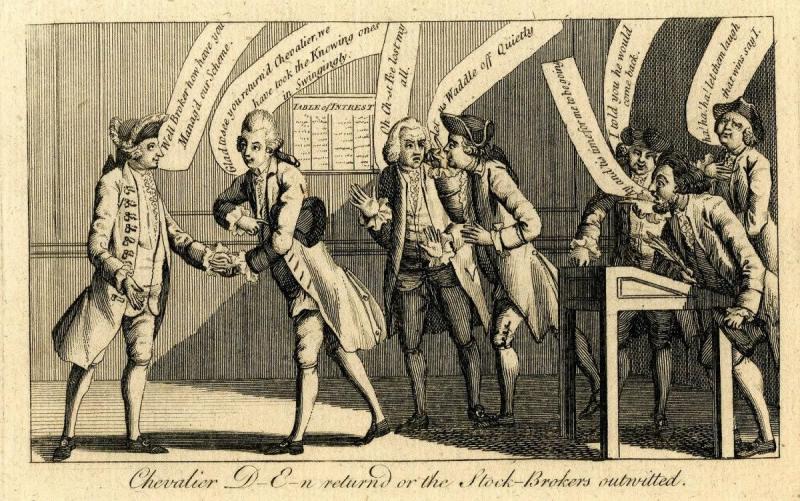Quote
"When a Minister is arrived in the Country to which he is sent, after he has notified his Arrival, according to the wonted Custom, and that he has let them know what Character he is vested with, he ought to procure, as soon as is possible, a private Audience of the Prince..."
Links to the Encyclopedia:
Keywords
CHAP. XIV. What a Minister ought to do upon his Arrival in a Foreign Court.
WHEN a Minister is arrived in the Country to which he is sent, after he has notified his Arrival, according to the wonted Custom, and that he has let them know what Character he is vested with, he ought to procure, as soon as is possible, a private Audience of the Prince, and enlarge chiefly on the Desire which his Master has to cultivate a Friendship and good Correspondence with him, and to be united to him by stricter Ties and Engagements than in Times past; and this he ought to accompany with Declarations of the Esteem and Friendship which his Master has for the Prince, or State, to which he is sent, and of the Desire which he himself has to be able to contribute to the happy Union that is between them.
Having once got over all the Ceremonies that are necessary and usual upon a Minister's first Arrival, he ought in the next place to make it his Business to know well the Ground upon which he stands; that is, to observe carefully the State of the Court and Government. He ought especially to study the Prince, his Humour, his Inclinations, his Vertues and his Weaknesses, that he may be able to make a right Use of the Knowledge of those Things as Occasion shall offer: He may not only come at the Knowledge of these Things of himself, if he is a Man of Penetration, because of the free Access which his Imployment gives him to the Prince; but also by the Lights he may have from the other Foreign Ministers, who have resided a long time in the same Court, and with whom it is useful for him, and oftentimes necessary, to contract a Friendship and Familiarity to a certain Degree.
Seeing there is no Prince but who has some Confident or other to whom he imparts with more than usual Freedom his most important Affairs; it is therefore highly necessary, that the Minister should study at the same Time, the Temper of the Ministers and Confidents of the Prince to whom he is sent, that he may discover their Opinions, their Passions, their Prejudices, and their Interests; and how far the Credit they have with the Prince, or in the State, may extend, and what Share they have in the Resolutions that are taken in Council.
So soon as he is exactly informed of all these Things, he ought, in his Dispatches, to send a faithful Account of them to his Master, and to give his own Sentiments thereupon, touching the Means which he may imploy for obtaining Success in the Affairs committed to his Charge.
After having attained to the Knowledge of these Things, his next Endeavour ought to be to make the right Use of the said Knowledge, by pursuing the proper Methods of gaining the Favour and Esteem of the Prince, of his Ministers and Favourites, and applying himself to find out the proper Ways of rendering them favourable to the Interest of his Master.
In order to succeed therein, the surest and best Way that an able Minister can take, is to examine all the Advantages that the Prince, or State, where he resides, may receive from the Union which he proposes; to endeavour to convince them of it; and to labour sincerely to procure them, and to make them concur with those of his Master. By this Means he becomes the Cement of their Friendship, and Union; and he gains most assuredly their Esteem and Confidence, by making their common Interests to flourish and prosper.
He may likewise sometimes take Advantage of the Passions of a Prince, or his Ministers, such as those of a Grudge for Injuries received, or a Jealousie against some other Potentate, to oblige them to take Resolutions favourable to the Interests of his Master; because, on those Occasions, the Passions prevail 1 often over the greatest Interests.
This is what happens more commonly in the Courts of Princes, than in Republicks, unless these last be drawn in by a small Number of ambitious Men, who seize upon the principal Authority of the Commonwealth, and who sacrifice the Publick Interests to their own particular Views, and to the Advantages which they reap from thence.
Sources
François de Callières, The art of negotiating with sovereign princes. of the usefulness of negotiations; of the choice of ambassadors and envoys; and of the qualifications necessary for succeeding in those imployments. By Monsieur de Callieres, Counsellor in Ordinary to the King, Secretary of the Cabinet to His Majesty, heretofore Ambassador Extraordinary and Plenipotentiary from the late King for the Treaties of Peace concluded at Ryswick, and one of the forty Members of the French Academy. Translated from the French. London: printed for Geo. Strahan, at the Golden Ball against the Royal Exchange (London), 3rd edition, p. 133-137. Transcription by Alain Kerhervé. Full text in ECCO.
